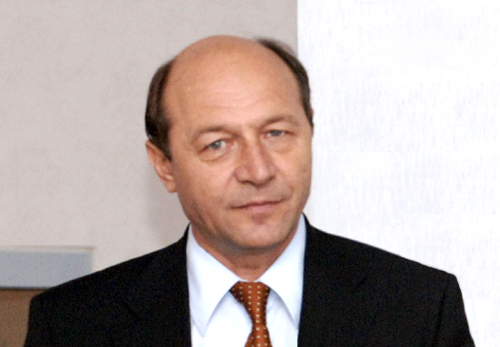
Romanian-Ukrainian Espionage Scandal Exacerbates Already Poor Relations
Publication: Eurasia Daily Monitor Volume: 6 Issue: 51
By:

NATO and European Union (EU) membership for Romania was meant to consign to history its penchant for territorial claims and its poor record on national minority rights, but this was not to be. Ukraine, the non-NATO member with the greatest level of cooperation with NATO, has expelled two diplomats of NATO-member Romania after accusing them of supporting separatists and discrediting the alliance’s image of Ukraine.
The expelled diplomat and military attaché lived in the Romanian Consulate in Chernivtsi, the capital of the oblast of the same name, in the Northern Bukovina region annexed from Romania by the USSR in 1945. A visit by Romanian President Traian Basescu to Ukraine scheduled for February 24 and 25 was put off indefinitely. Basescu had planned to visit the Romanian minority in Chernivtsi Oblast, Ukrainian sources believed, so that he could establish his nationalist credentials and proclaim in his election campaign that he was a "collector of Romanian lands" (Zerkalo Nedeli, March 7-13).
Two Ukrainian diplomats were also expelled from Bucharest. This was fourth time a country had expelled Ukrainian diplomats since 1991 (the three earlier cases were from Canada, Russia, and Georgia). The Ukrainian military attaché was alleged to have been purchasing military secrets from Petar Zikulov, a Bulgarian who had ties to Florizel Akimom, an officer in the Romanian Ministry of Defense.
The official Ukrainian statement accused the Romanian diplomats of having propagated "unionist and separatist feelings" among the Romanian minority. The Romanian diplomats also allegedly financed civic organizations and cultural societies that "propagate anti-Ukrainian ideas" (www.pravda.com.ua, March 5).
Romanian diplomats also agitated among Romanian civic organizations to support calls to establish an autonomous ethnic Romanian region in Chernivtsi Oblast. Ukraine has always ruled out creating any autonomous entities outside of the Crimea, and the issue of autonomy is quite sensitive.
A more nebulous Ukrainian charge was that the Romanian diplomats had propagated a picture of the Ukrainian authorities that "discredited our country in the world arena" (www.pravda.com.ua, March 5). In the last four years, President Viktor Yushchenko has not required any Romanian assistance in discrediting himself and the Orange Revolution. As Zerkalo Nedeli (March 7-13) pointed out, the doors to NATO for Ukraine will remain closed for some years, and "we have discredited ourselves far better than any Romanians could have accomplished."
Segodnya (March 6) wrote that the Romanian aim was to establish an image of Ukraine in the EU and NATO as a country "that undertakes espionage activity against NATO members." Bucharest is aware that the Ukrainian Foreign Ministry has greater maneuverability for adopting a tough line toward Romania than it has toward Russia.
Romanian-Ukrainian relations have never been particularly good for five reasons. First, Romanian irredentist nationalism has traditionally permeated Romania’s entire political spectrum. Extreme nationalists, for example, aligned themselves with the post-communist social democrats who ruled the country in the 1990s. Romania joined Russia in 1997 as the last of Ukraine’s neighbors to recognize Ukrainian borders.
Second, Ukraine and Romania have never given priority to improving their relations. Ukraine has focused on Slavic Poland and the three Baltic states, dealt as best it could with Russia, was rebuffed by the EU, and prioritized relations with the United States. Romania has focused exclusively on relations with the West, that is, joining NATO and the EU, while turning its back on its eastern neighbors.
Third, Romania condemns Ukraine’s policy of defining Moldovans in its censuses as an ethnic group distinct from Romanians. This issue is intimately bound up with Moldova’s status and Ukraine’s historical relationship with the Trans-Dniestr separatist enclave, which was the Moldovan Autonomous Republic in the interwar Soviet Ukraine. The Moldovan Soviet Socialist Republic was the only Soviet republic (aside from Ukraine) with a larger population of ethnic Ukrainians than ethnic Russians.
Fourth, during Leonid Kuchma’s presidency, Ukraine began building a canal on the Danube that Romania opposed. Kuchma opened the first part of the canal on August 26, 2004, with the words, "I give the command to restore navigation in the Ukrainian part of the Danube Delta" (see EDM September 9, 2004). The EU added its critical voice to the building of the canal in the registered 70,000-hectare UNESCO World Heritage Site. In the Convention on Environmental Impact Assessment in a Transboundary Context, issued by the United Nations Economic Commission for Europe, members are required to notify and consult with each other on projects such as the Ukrainian Danube canal (www.unece.org/press/pr2008/<wbr></wbr>08env_p06e.htm).
Fifth, territorial conflict over Serpents Island and its territorial waters was only resolved in February in Romania’s favor, after a five-year investigation by the International Court of Justice. The ruling equally divided the maritime zone without taking into account the existence of an island. Romania has consistently argued that the island was not mentioned in the 1947 border treaty between Romania and the USSR. The Ukrainian-Romanian dispute over Serpents Island centered on the delimitation of its shelf and the exclusive economic zones between Romania and Ukraine. If the island were to be recognized as an island, then the surrounding shelf would be considered Ukrainian waters. If it were not defined as an island (as the February ruling concluded), the maritime boundary between Romania and Ukraine would then simply ignore the island. Another area of contention was Chernivtsi Oblast (formerly Northern Bukovina), which has a Ukrainian majority and a Romanian/Moldovan minority.
Relations between Romania and Ukraine were already poor before the spy scandal. In an unusual move, Ukraine made the spy affair public and has used the occasion to condemn Romania’s support for separatism, which is always a sensitive issue in Kyiv. Romania has not made similar accusations of Ukraine’s committing espionage or supporting separatism. Neither country will go so far as to recall ambassadors, but relations will decline to a very low level, thereby losing Ukraine a potential ally in its goal of seeking NATO and EU membership. The Polish, Hungarian, and Czech ambassadors have advised Ukraine that joining NATO would require "political stability" and the "regulation of joint questions with [its] neighbors" (www.pravda.com.ua, March 17).




